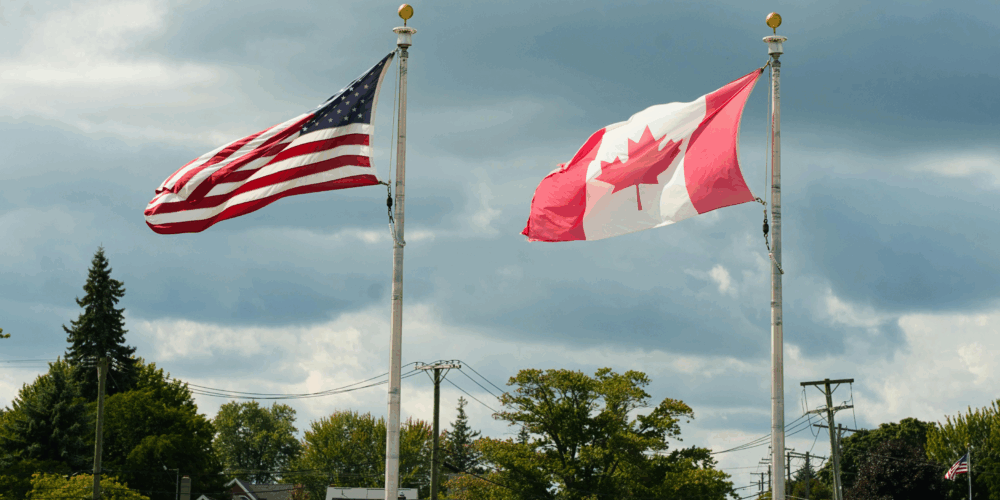„Carney needs to keep this unity going“

The April 2025 Canadian general election was dominated by Donald Trump’s threats to annex Canada and the surge in US tariffs on Canadian goods. Mark Carney’s Liberals won the election, in part because Carney positioned himself as an ‘anti-Trump’. Read Young Atlantiks’ alumnus Benjamin Sauvé’s takeaways from the 2025 German-Canadian Conference regarding the new US-Canada relationship.
From my perspective, the relationship between Canada under Mark Carney and the USA under Donald Trump was a central focus of many discussions during the 2025 Atlantik-Brücke conference. The conference focused mostly on the zero-sum trade war happening in the recent months. The second panel, per example, began by addressing the economic and trade instability originating from Washington as a complex challenge for the new Carney administration. This new paradigm of trade instability requires a new structure from the ground up, which presents an opportunity to improve Canada’s trade outlook through diversification.
On the bright side, diversifying trade partners requires the removal of internal barriers, which will be positive for Canada in the long run. Furthermore, these unprecedented times call for moving beyond assumed cooperation and instead embracing active multilateralism in trade.
Economic security cannot depend on overreliance on the US, which – even under normal circumstances – may lead to stagnation. Navigating current uncertainties will be complex for the new Prime Minister Carney, particularly due to Canada’s geographic limitations – being surrounded by oceans isolates the country from world markets. Nevertheless, increased mobility and stronger safety nets can create better opportunities and enhance competitiveness in trade.
“Trade conflicts have transformed into a broader struggle for democratic values”
Another important element of this new relationship is the need for democratic stability in the face of rising populism. The fifth panel of the conference examined the outcomes of the elections in Germany and Canada and presented the emerging political landscapes. The first statement focused on Canada, emphasizing that the country was not divided. This bold assertion highlighted aspects of balance rather than numerical outcomes. At this point, no one had questioned the election results, which projected a sense of unity in contrast to the political instability seen in the 2020 US-election. The main idea that emerged out of this entailed that the new government under Carney needs to keep this unity going. A member of the panel speculated that the first year of this new government will be crucial because the honeymoon might end in disaster if the concerns of most Canadians are not meant against the US threats.
In conclusion, the political instability in the relationship between Canada under Mark Carney and the USA under Donald Trump has transformed trade conflicts into a broader struggle for democratic values. Guidance and renewal will be required from the new Prime Minister to address the challenges ahead.

Benjamin Sauvé is currently doing his PhD at McGill University, where he also works as a Course Lecturer, and is a board member of the German Association of Montreal. He took part in the German-Canadian Conference 2025 as part of Atlantik-Brücke’s and Atlantik-Brücke Canada’s Young Atlantiks Cohort.
